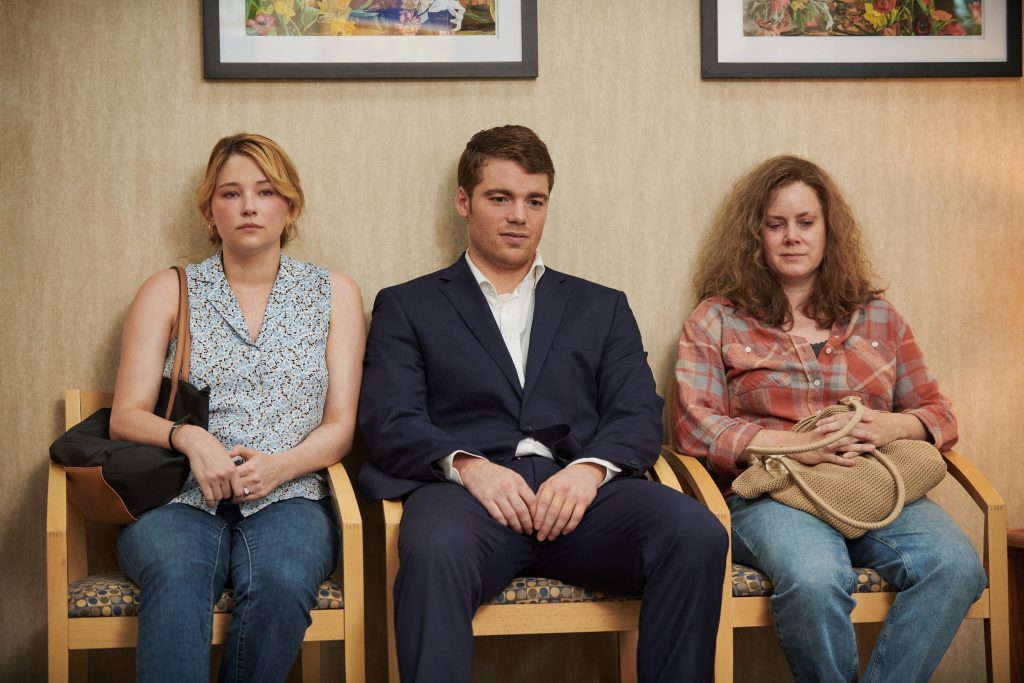Stories are nothing like real life. In the ones we are most used to, a protagonist faces a challenge at the beginning and experiences success or failure by the end. If a boy meets a girl, he either loses her or marries her.
At such a story’s climax, the plot unravels and everything falls into place in a way that reveals every event along the way as necessary for the final outcome. In the process, characters experience a transformation –– after facing the ordeal, they have learned their lesson and are ready to begin a new life.
Life, however, is different. The plot is rarely very clear, events are confusing, and resolution never arrives. When is the climax of one’s life? At what point do all the events make sense? What final outcome was everything conspiring toward? And what lesson is there to learn?
This is what makes turning real lives into stories a particularly interesting — not to mention difficult — task.
Famed director Ron Howard’s latest undertaking, “Hillbilly Elegy” (out on Netflix Nov. 24) has all the marks of a bad movie adapted from a good book. The autobiographical 2016 New York Times bestseller of the same name received critical acclaim for, among other things, its portrayal of Appalachian culture.
But it accomplished something more profound by searching for meaning in the suffering of its author’s past.
The movie attempts to do the same, but comes back with a shallow, confused answer.

J.D. Vance’s family is originally from Kentucky, the heart of hillbilly country, and he grows up in an economically depressed suburb in Ohio. He is the son of a single mother, Bev (played by Amy Adams) who struggles with depression and addiction, goes from partner to partner, and has trouble holding down a job.
The other crucial figure in his life is his grandma, Mamaw, who is also poor and in a dysfunctional relationship with a violent and alcoholic husband.
The movie is at its best in the magnificent portrait of this elderly, no-nonsense woman (played superbly by Glenn Close). Mamaw is rough and impenitent, loves Christ but hates churches, and manages to combine in the same letter to her grandson the following sentences: “Jesus walks with you, J.D., stay strong,” and “I wish I had a gun so I could shoot that [expletive] drill sergeant of yours.”
Mamaw is far from a model grandmother and very much aware of her limits, yet she steps in to do the right thing for her grandson at the right time.
The look at these two female figures is both compassionate and unapologetic. Both have suffered, yet the film does not hide their personal faults or uses their miseries to exonerate them.
The effect is almost liberating, reminding the viewer that there is no need to pretend. Yes, all families are messed up, we all harm and are harmed, and yet this awareness should not stop us from seeking to do something good, from starting anew every day.
The film follows a typical pattern by tracking an unlikely success story. From socially depressed hillbilly suburbia, J.D. makes it all the way to the Ivy League and Yale Law School.
In the process, he evolves from a despondent teen on a path to jail and addiction into a model student who defeats the odds while not rejecting his past. Crucial to this transformation is the teen’s relationship with Mamaw, who steps in to rescue him when everyone else has given up.
But J.D.’s upward trajectory is not what the film is primarily about. (“Hillbilly Elegy” opens with the protagonist already in Yale Law School, so there is no mystery about the outcome.) Instead, it is about confronting one’s past. When his mother overdoses, J.D. is forced to return to his dysfunctional family and relive his traumatic childhood.
The key idea is neatly summarized by J.D.’s sister Lindsay (Haley Bennett) when talking to J.D. about their mother: “I can’t defend her, but I am trying to forgive her. … If you don’t, you’re never gonna get out of what you are trying to get out of.”

This is a great insight. After all, isn’t this something our daily attitude toward life ultimately depends on? If I see my past history as a pile of injustices, I am bound to be bitter and selfish. If my past is one big mistake, then God is a sadist, and I am entitled to worry about my own business with minimal compassion for others, since I received none.
As T.S. Eliot memorably put it in his work “Four Quartets,” the moments of agony — the unhealable sufferings in our past — are like rocks in the middle of the sea, concealed by waves and fog. At times of calm they are a navigable seamark or a monument, but when the storm strikes, when life spins out of control, those rocks are where our ship crashes.
What is great about art is how it can capture the experience of illumination, the rare moment when a supernatural light reveals a deeper truth about the events of life. We somehow “get it,” and for an instant we are made to understand that all that suffering was not in vain.
The pattern of a design seems to appear beyond the chaos of events and feelings. For those who profess Christ crucified, this is the look of faith, which transforms the cross into a gateway to truly experiencing the resurrection.
In the film, this moment never quite materializes. It remains unclear what really allows J.D. to reconcile with his past and move on. By the end of the film, we don’t really know what exactly has changed in him, or what realization might have triggered such a change.
The movie ends on a shallow note. As J.D. moves on to success, a voiceover tells us that “where we come from is who we are, but we choose every day who we become,” which seems like a fair, although conventional, piece of advice.
And it almost seems as if “making it” in life, i.e., becoming successful, is what redeems one’s history. But what about those who never “make it,” despite their efforts?
The rich material of the book has, I feel, been compressed and adapted in an unhelpful way. Although “Hillbilly Elegy” is far from great, I still can’t help but recommend watching it. All of us could use an invitation to look back at the story of our life and to yearn for that light to be cast on our own stories of suffering and redemption.

